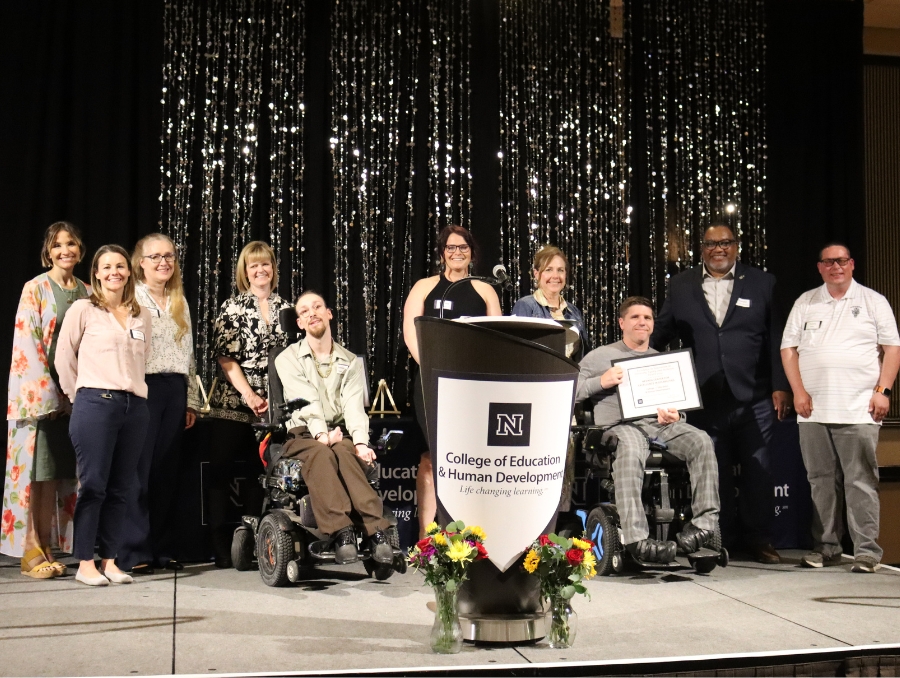The purpose of the Center for the Application for Substance Abuse Technologies' (CASAT) new prevention, education and awareness kit is to help break the cycle of problem gambling in the senior population of our state at the earliest possible stage.
Each kit includes one DVD and 10 booklets. A total of 3,500 were produced over a six-month period on a $163,000 grant from the Nevada Department of Health and Human Services. Packages will be disseminated by trained professionals and volunteers in senior citizen centers or other senior venues, statewide.
"After conducting a thorough review of gaming prevention, education and awareness programs in the state, I found that the senior population was underserved, " Stephanie Asteriadis, CASAT coordinator, said. "I found that little information was available and that it was not specific to Nevada seniors. Seniors and those who serve them need to know what problem gambling is, how to recognize it, who is at risk, and how to refer seniors to qualified professionals for help."
With assistance from the University's Sanford Center on Aging, the Nevada Council on Problem Gambling and other expert sources, CASAT was able to produce an informational package that would be both suitable and appealing to Nevada's aging population.
"We conducted several focus groups with the Retired Senior and Volunteer Programs (R.S.V.P.) in Washoe County and the RSVP at the Catholic Charities of Southern Nevada in Las Vegas to test our material," Asteriadis said. "We feature seniors recovering from problem gambling in the DVD and used feedback from the focus groups to pilot and refine the materials in the kit."
Problem gambling for seniors has similarities to problem gambling of other populations, but it is different in several ways. Seniors may begin to gamble for different reasons and special factors put them at risk for developing a gambling problem.
Some of the factors increasing the risk for seniors include: gambling to relieve boredom, loneliness and isolation; gambling to get away from the problems and concerns they may be experiencing such as illness, loss of a loved one and/or grief; some seniors may have physical, mental illness or cognitive impairments increasing their risk to develop a problem.
Seniors are highly impacted by problem gambling because they have less time, energy and opportunity to recoup their financial, employment and relationship losses than younger adults.
"An interesting aspect of problem gambling in the senior population is many seniors turn to gambling because it is a way to get rid of loneliness," said Nancy Roget, director of CASAT. "They can go to the casino everyday, get to know the staff and engage in a social activity."
There are many warning signs affiliated with problem gambling. They include: repeated, failed attempts to stop or control gambling; borrowing money to gamble or pay gambling debts; lying about the amount of time and money spent gambling; and feelings of hopelessness, depression or suicide as a result of gambling.
"Problem gambling is an addiction and, therefore, an illness," Roget said. "The symptoms of the disease are physical as well as mental. This may be a new concept for people who have always thought of problem gambling as a vice that people should be able to stop on their own."
Treatment is vitally important to reducing the consequences of problem gambling for seniors.
"Treatment of problem gambling works," Roget said. "Friends, caregivers and family members of seniors experience problem gambling need to have certain resources to understand the myths and facts, impact, cycle and warning signs of problem gambling. This is exactly what our package is designed to do."
CASAT was founded in 1993 with a single $750,000 federal grant. To date CASAT's annual budget is more than $5.4 million from federal and state grants and contracts. CASAT serves the region west of Colorado, the Pacific jurisdiction including Hawaii, the Federated States of Micronesia, Guam, Palau, Western Samoa, Australia, the northern Mariana Islands and the Marshall Islands. CASAT also offers a variety of addiction related academic courses and programs for University credit.
For confidential assistance for problem gambling call the Problem Gamblers HelpLine at 1.800.522.4700.
CASAT's mission is to provide training, technical assistance, evaluation, research, and other services to support prevention, treatment and recovery in the alcohol and other drugs field.
CASAT strives to improve substance abuse prevention and treatment services by helping states, organizations, agencies, and individuals apply evidence-based practices in the field. All of its grants and contracts support this mission.










